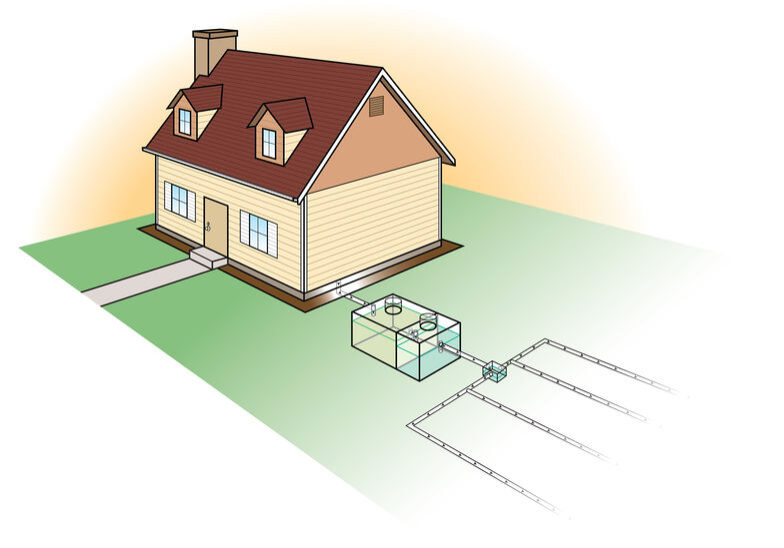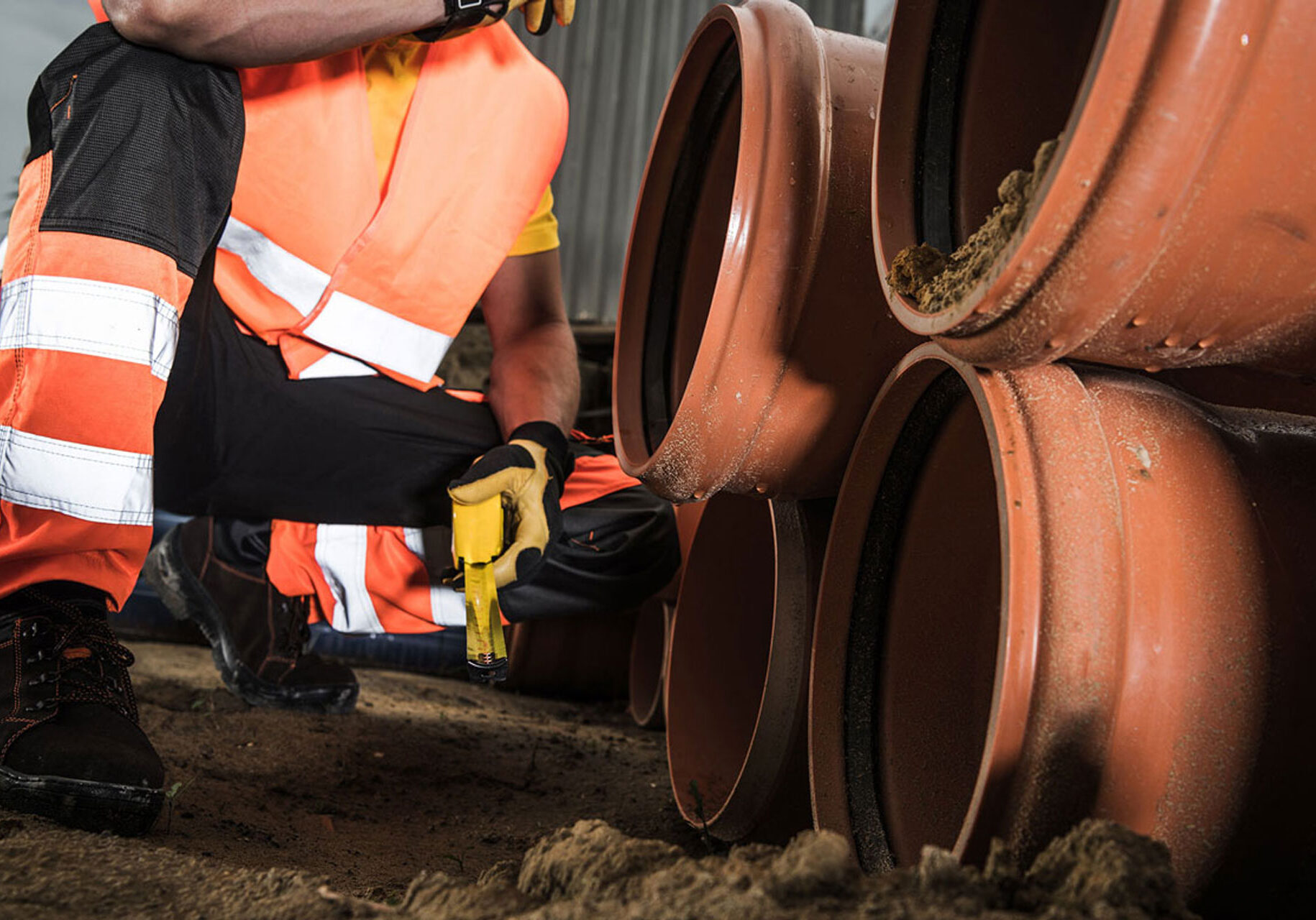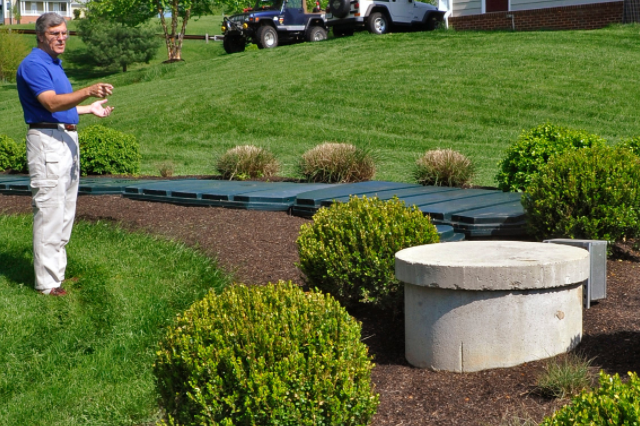A septic system is one of the most important yet often overlooked components of a home. It works quietly in the background, treating wastewater from sinks, toilets, showers and laundry.
When it’s well-maintained, you may hardly think about it. Everything flushes, drains and operates as it should, and life goes on without interruption. However, when issues arise, they can quickly turn into messy, inconvenient and costly problems. From foul odors and slow drains to backups or even system failure, the consequences of poor septic system care can disrupt your home and finances in a hurry.
The good news is that most septic system issues are preventable with consistent care and smart habits.
In this guide, we’ll walk you through the most important do’s and don’ts of septic system care to help extend the life of your system, prevent costly repairs and keep your home running smoothly.
Table of Contents

Why Septic System Care Matters
A septic system is designed to last anywhere from 20 to 40 years or more, depending on the quality of installation, soil conditions and, most importantly, how well it’s maintained.
Without proper care, problems such as clogged pipes, backups, foul odors and even groundwater contamination can occur.
Neglecting your septic system care doesn’t just impact your household — it can also harm the environment by allowing untreated wastewater to seep into nearby soil and water sources.
That’s why knowing the do’s and don’ts of septic maintenance is more than a convenience; it’s a responsibility.
The Do’s of Septic System Care
Let’s start with the positive steps you can take to keep your septic system in excellent working order.

Your septic system should be inspected every 1 to 3 years by a licensed professional. Septic inspections help detect early warning signs of problems such as leaks, cracks or buildup in the tank. A regular check-up can prevent small issues from turning into costly repairs.

Most septic tanks need to be pumped every 3 to 5 years, though the exact frequency depends on the size of your household, tank and water usage. Septic pumping removes the sludge and scum that accumulate in the tank and ensures the system has enough capacity to function properly.

Excess water entering your septic system can overload the tank and drainfield, leading to backups and premature failure. Fix leaky faucets, install low-flow fixtures and spread out laundry loads to reduce water use. Every gallon of water that enters your home also flows into the septic system.

Maintain a file with records of all inspections, pumpings and repairs. This not only helps you keep track of your septic system care, but also provides valuable information for future homeowners if you decide to sell your property.

Your drainfield is one of the most important parts of your septic system. Excess water from gutters, sump pumps or surface runoff can flood the drainfield, making it harder for the system to treat wastewater. Make sure your yard is graded properly, and reroute downspouts away from the septic area.

If your septic system is in your yard, choose grass or shallow-rooted plants above the tank and drainfield. Avoid planting trees or shrubs nearby, as their roots can invade and damage the pipes.

Everyone in your household should know the basics of septic system care. Simple habits — like not flushing wipes or overloading the washing machine — can make a big difference in keeping your system running smoothly.
The Don’ts of Septic System Care
Equally important as knowing what to do is knowing what not to do. Many septic problems occur because of habits that seem harmless but actually damage the system over time.

Your septic system is designed to handle human waste and toilet paper only. Items like wipes, feminine hygiene products, diapers, cotton swabs and even “flushable” wipes do not break down properly and can clog pipes or fill your tank too quickly.

Grease, fats and oils may seem like liquids when warm, but they solidify as they cool. Once inside your pipes and septic tank, they can create blockages that disrupt the entire system. Dispose of grease in the trash instead.

Chemical drain cleaners, bleach and septic tank additives can disrupt the natural bacteria that break down waste inside your tank. Without these beneficial microbes, your septic system cannot function properly. Opt for septic-safe cleaners instead.

Heavy vehicles or structures placed over the septic tank or drainfield can cause physical damage, compact the soil and restrict the system’s ability to absorb and treat wastewater. Always keep these areas clear.

If you notice slow drains, gurgling sounds in the plumbing, standing water near the drainfield or unpleasant odors, these are red flags. Ignoring them could lead to system failure. Contact a septic professional immediately for inspection and septic repair.

Running the dishwasher, multiple showers and laundry loads all at once can overwhelm the septic system. Spread out water usage throughout the day to allow the system to process wastewater efficiently.

Even if your system seems to be working fine, skipping pumpings and inspections is risky. Septic systems often show no symptoms until problems are advanced. Routine care is always cheaper than repairs or replacements.
Common Mistakes Homeowners Make
Even with the best intentions, many homeowners unknowingly harm their septic system. Here are some of the most common mistakes:
- Using too many household cleaners: Overuse of antibacterial products can kill the good bacteria in your septic tank.
- Installing garbage disposals: They add extra solids that can clog your tank quickly. If you must use one, pump your system more often.
- Not knowing the system’s location: Homeowners sometimes plant trees, install patios or drive over septic areas without realizing it. Always know where your tank and drainfield are located.
- Delaying repairs: Small leaks or cracks can lead to big — and costly — problems if ignored.

Long-Term Benefits of Septic System Care
Taking care of your septic system offers several long-term benefits:
- Cost savings: Regular maintenance costs far less than major septic repairs or full system replacement.
- Longevity: A properly maintained system can last decades, protecting your investment.
- Health and safety: Prevents exposure to harmful bacteria and sewage.
- Environmental protection: Keeps untreated wastewater from contaminating soil and groundwater.
- Peace of mind: With consistent septic system care, you don’t have to worry every time you run the washer or flush the toilet.

When to Call a Professional
While some septic system care tasks can be handled by homeowners — like conserving water or watching what goes down the drain — others require professional expertise. Call a licensed septic professional if you notice:
- Sewage backups in sinks, tubs or toilets
- Standing water or soggy ground near your drainfield
- Persistent foul odors around the septic area
- Slow drains throughout your home
- It’s been more than 3–5 years since your last septic pumping
A professional can assess the situation, recommend septic repair if needed and help keep your system functioning efficiently.
Keep Your Septic System Flowing Smoothly
Your septic system is a vital part of your home’s infrastructure. With proper septic system care, you can avoid costly repairs, keep your household running smoothly and make sure your system lasts for decades. By following the do’s — like scheduling inspections, pumping regularly and conserving water — and avoiding the don’ts — like flushing non-biodegradable items or skipping maintenance — you’ll protect your investment and safeguard your family’s health.
Need professional help with septic system care in Oklahoma? All American Septic is here to help with inspections, septic pumping, septic repair and more. Contact us today to schedule your service and keep your system in top shape.
